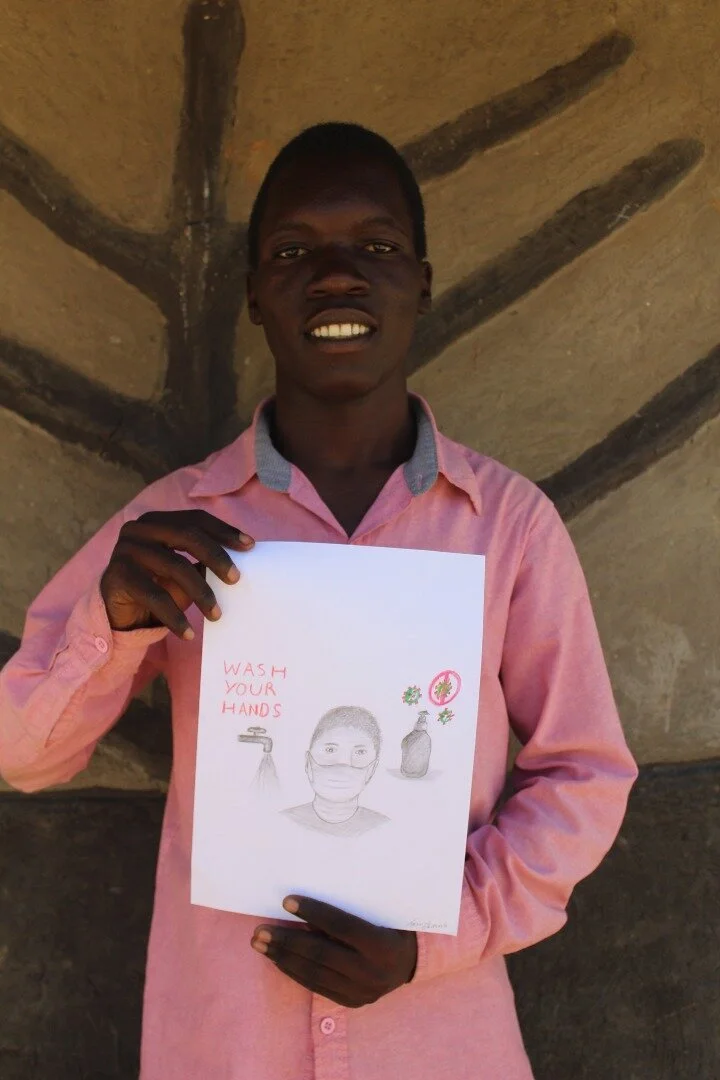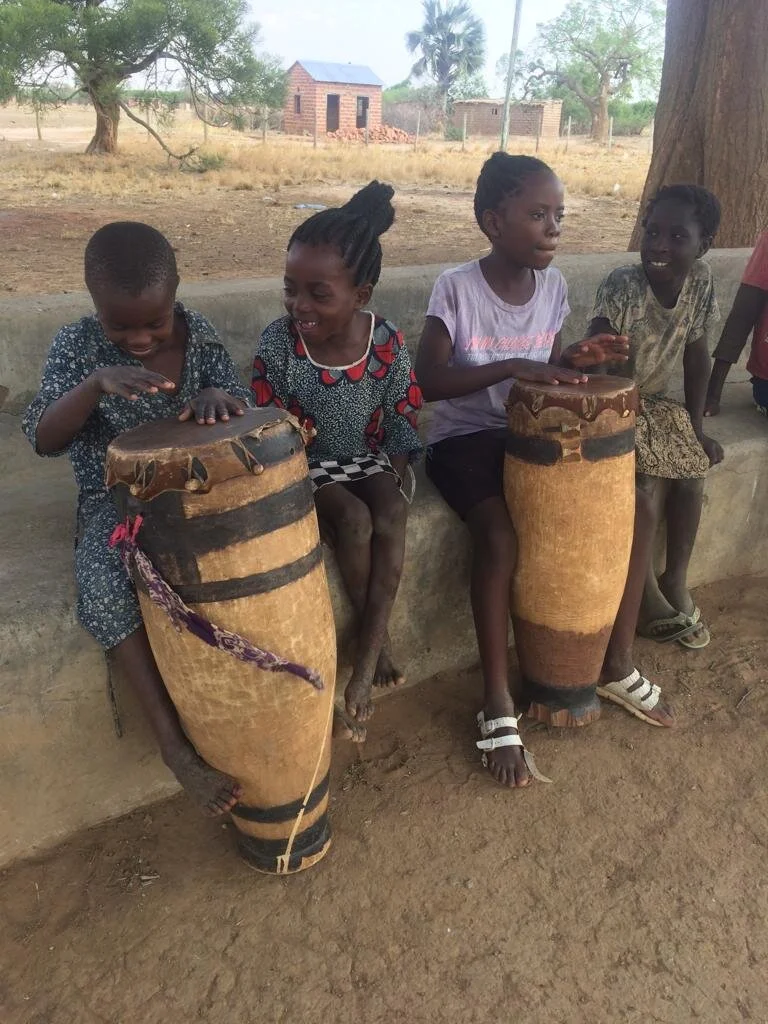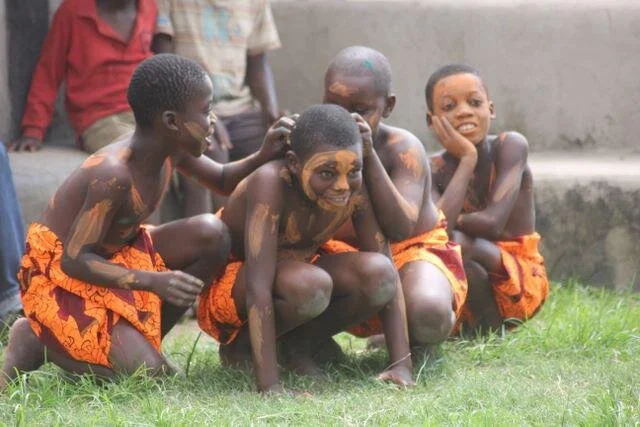Serving children during the pandemic
Since the coronavirus forced us to close the libraries’ doors in mid-March, our staff has been as busy and dedicated as ever – using text messaging and phone calls to maintain their close relationships with children who are now dealing with anxiety and fear – and sorely missing their library!
Brendah continues to remotely teach the young mothers and their children to read in English. Enesto has been guiding children to express their fears and anxieties about Covid-19 in drawings and sending their drawings to him…moving instinctively into the realm of art therapy. Besa types out and sends popular stories (think Frog & Toad) as text messages to parents and caregivers to read to their children. Youth contact Kenny to talk about the often serious problems they are encountering. In the virtual mentoring sessions he has been conducting, he responds to their longing for the library to open again by discussing faith; when their anxiety increased because of the increasing spread of the coronavirus in their world, he guided them to think about hope. It seems the natural progression from there is to focus on charity: love.
In our rural library, the wide-open outdoor spaces allow Esnart and Mweemba to continue beloved storytimes and mentoring programs, and creatively maintain the lifeline they have established for those girls that are escaping the fate of child marriage.
And of course our technical and administrative activities continue at full speed, with closed libraries being an ideal time to conduct inventories of library holdings and update the library catalog. Staff are in the final push for finishing our LubutoLiteracy lessons – as this has been an important time to get those computer-based Zambian language reading lessons out beyond library walls. Our data collection and analysis systems are beefing up to handle a new research project we’re embarking on to measure the effectiveness of our LubutoMentoring program. And we’ve all been busy developing new mentoring programming so that the research can begin as soon as we are able to reunite with the children in the communities we serve.
Lubuto programs before the pandemic
As with the rest of the world, we cannot know what the new reality will look like after it’s safe to let children come back to the libraries they so miss. The only thing that seems certain is that it will be different. Looking back at our origins in the late 1990’s/early 2000’s as a response to an earlier virus pandemic (HIV/AIDS), we know that relying on the talents and generosity of caring Zambians, and on the strong pull of community, has created something that is just what children, and their communities, want and need. That experience sheds light on our future directions and can guide us going forward.
The children who so fervently miss coming to their library are not primarily clamoring to read books or use computers – they are eager to talk with our staff, to share their issues and situations, to get advice and support from their very caring and empathetic mentors at the library. Those essential mentoring relationships are a lifeline to and between the children and our staff. Mentoring, in all the rich and varied forms it takes in Lubuto Libraries, has surfaced, in my mind, as our most enduring impact and offering to children. That, and the embrace of an accepting and joyful community.




















